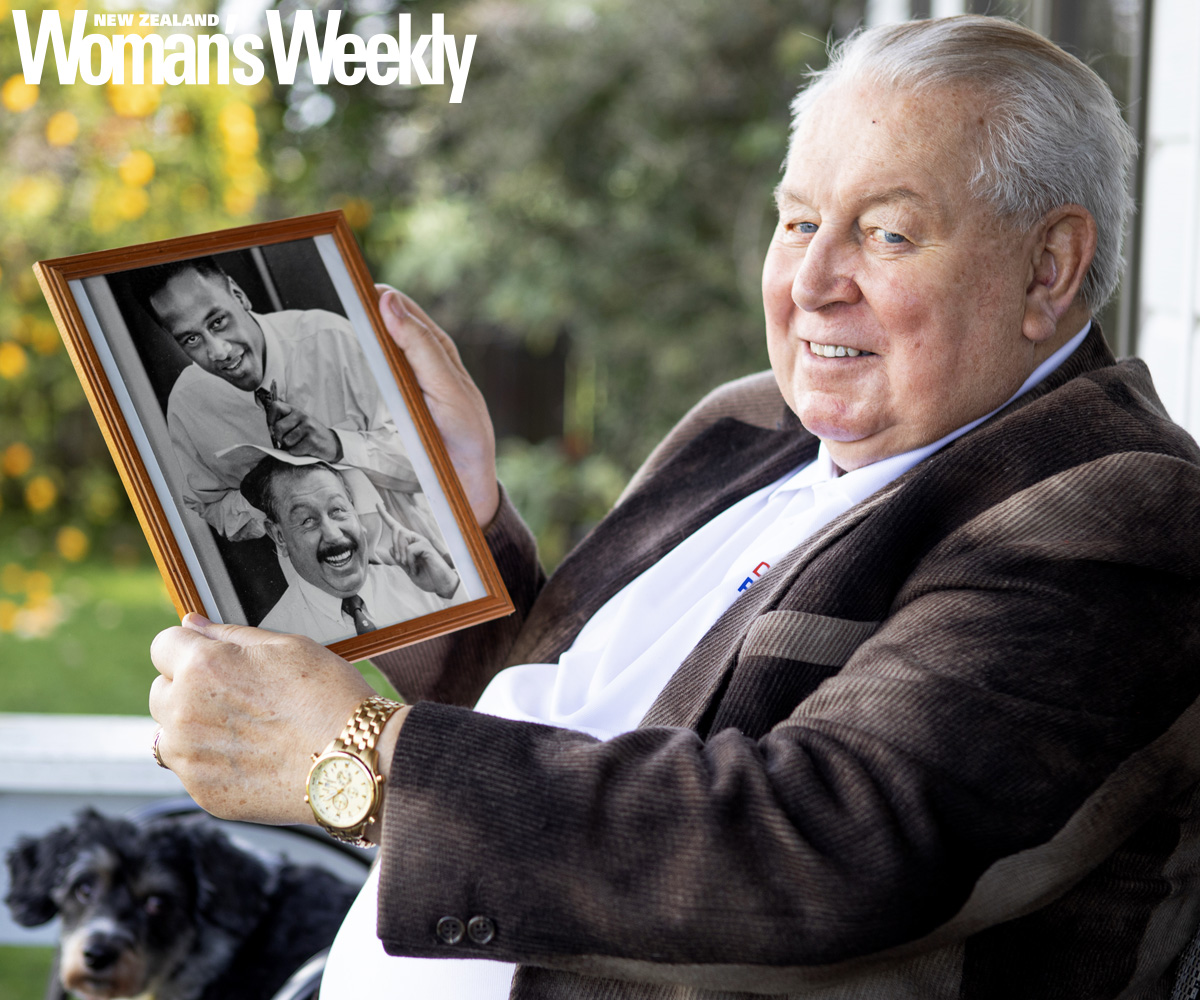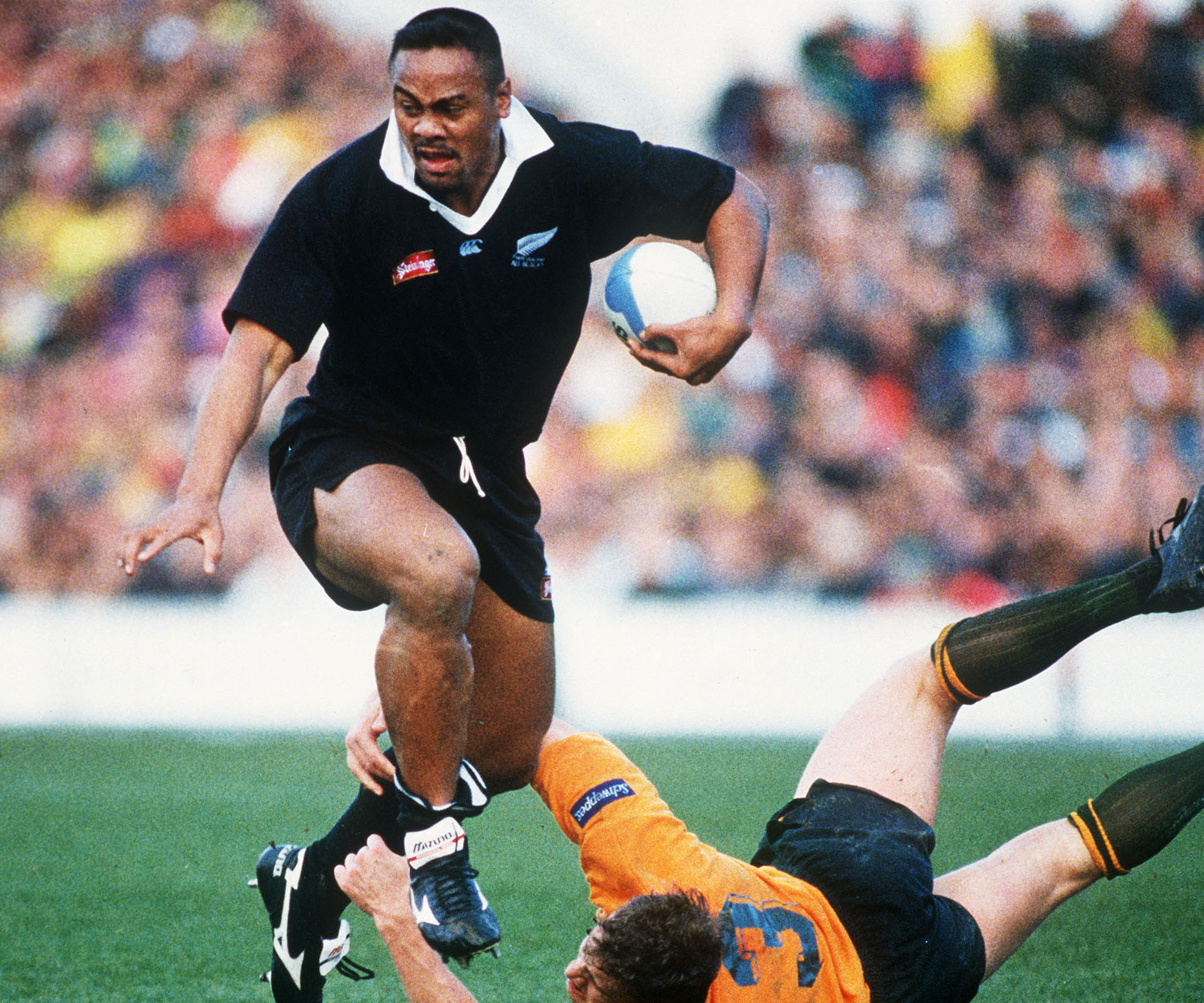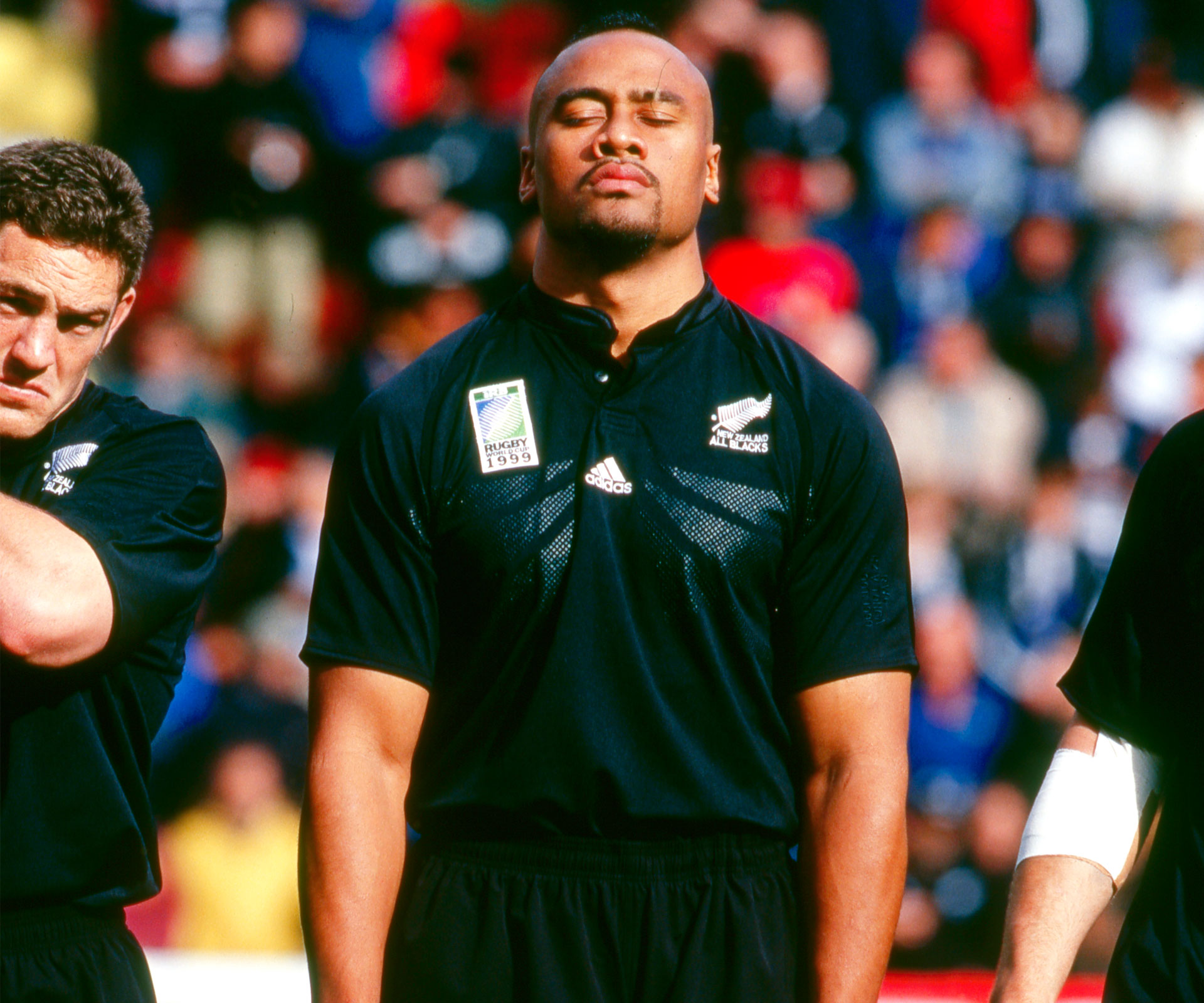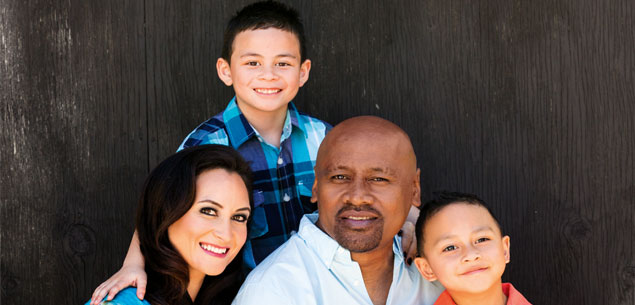Phil Kingsley Jones was there at the beginning of Jonah Lomu’s rugby career. He managed him for 10 years and became a father figure to the young winger.
But at the end of Jonah’s life, Phil was nowhere to be seen.
Despite helping Jonah through this mega-star career, when it came to his funeral on November 30, 2015 – after his death from a cardiac arrest related to his rare kidney condition – Phil was
told to stay away.
“It was the worst time of my life not going to the funeral,” Phil (71) declares as he wipes tears from his eyes.
“On the day of the funeral, I sat at the Counties Manukau clubrooms and watched it on the telly with tears streaming down my face.”
Just days before he had been contacted and told not to come.
“A young prop from Tonga who did security rang me up and said, ‘Phil, I’ve been told you’re not allowed at that funeral – Jonah wouldn’t want you there.'”
Four years later, Phil is recalling that sad day in anticipation of the mini-series Jonah, which is screening on Three on August 18-19.
He hasn’t had anything to do with the making of the two-part show about Jonah’s life, but Phil hopes he gets portrayed fairly and his role in the rugby legend’s life is told well.
“I hope the truth comes out in the programme because when he died nobody who knew me, who knew the relationship I had with Jonah, put their hand up and said, ‘Hold on, why isn’t Phil at the funeral?’ That hurt.”

Throughout Jonah’s stellar career, Phil was always at his side.
(Credit: Getty Images)Phil first met Jonah on the rugby field at Wesley College after he had been hired to coach the young rugby players.
Phil was a Welshman whose previous career was as a stand-up comedian. But when he arrived in New Zealand his rugby playing history helped him get a job as the Counties Manukau coaching director. He also played for Mt Roskill and Mt Wellington.
As part of his job he would go around schools and coach students on ball skills.
“When I saw Jonah at Wesley College, I knew immediately he was a natural. He was spinning a ball on his finger and showing off, trying to impress me. But he told me he was into league, not rugby. I trained him anyway because ball skills apply to both codes, but when I picked a team to play against Sid Going’s team up in Kerikeri, I didn’t put Jonah in it, because he’d said he was
a league diehard.
“Jonah didn’t like that, so then he started playing rugby, which actually suited him better because league was played on a Sunday and his family didn’t like that. So that was how Jonah started playing rugby.”
Jonah was a 14-year-old schoolboy and quite quickly Phil became a mentor and a father figure.
When the star player left school, Phil arranged for him to get a job at the local bank in Pakuranga.
“He was over the moon to have that job and support himself while he played rugby.”
Jonah was just 19 when he wore the All Blacks jersey for the first time, in 1994.
Then one day, Phil got a call from the bank manager, who said Jonah was a bit upset and could he come down to the bank and have a chat with him.
“I got there and Jonah couldn’t look at me. I said, ‘What’s wrong boy?’ and it all came out. He had been offered a place in the Bulldogs rugby league team in Sydney. I think Jonah thought that because I was a rugby union guy I would be upset and go off him, but I wasn’t. He was being offered $300,000 and that was a lot of money for Jonah and for his family.
“He said that he wanted to take the place, but he’d only do it if I would be his manager.”
Phil told him that he didn’t need a manager, as everything would be taken care of by the Bulldogs, but Jonah insisted.
“He said he wasn’t going to sign unless I agreed. I thought about it and said I would be his manager, but only if he would give me his next All Black jersey.
“Jonah said I could have the two he already had, but I said I wanted the World Cup jersey, the one he’d get if he stayed in the All Blacks and played in the World Cup in 1995.
“Jonah turned down the Bulldogs and signed me as his manager, which meant he would go to the World Cup. I have the picture we took that day of Jonah signing a piece of paper on my head.”
The decision didn’t go down too well with Jonah’s family, says Phil, because the money would have been very welcome.
But as everyone knows, Jonah became a legend on the field in South Africa and changed the face of rugby forever in that World Cup. The young winger scored four tries for the All Blacks in their 45-29 win over England in their semi-final.
Phil recalls the game, and tears flow as he describes the wonder and awe in which the sporting world held Jonah at that moment. “I was so proud of the boy,” he tells.
And Phil got the World Cup jersey, which he counts as one of his most valuable possessions.

Jonah made a real impact on the 1995 World Cup and poor England fullback Mike Catt.
Phil ended up managing Jonah for 10 years, from 1994 until 2004. As a job it was hard work but always fun, with a few sleepless nights thrown in, he admits.
Jonah liked to spend money, particularly on cars, but Phil says he left that stuff up to Jonah’s accountant to manage.
“I was like the dad, so if it was something a dad could do for him, then he came to me. If it was money, then that was the accountant’s job.”
Phil found this arrangement very useful, especially when Jonah rang him up one day to say he’d had enough of the All Blacks and was going to leave.
“I hastily called him into the office and got his accountant in as well. He arrived and I asked the accountant to write up on the white board what Jonah’s financial position would be once he left the All Blacks. He told Jonah that he’d have to sell two houses, the cars would have to go and he’d be back at the bank working.
“Jonah looked at the white board and then looked at us and burst out laughing. He said, ‘Ha! I had you guys for a minute, didn’t I? Only joking. Got you good that time.’ We laughed along and were just glad he would be staying.”
Most of Phil’s job was to handle sponsorship deals for Jonah, and it was this work that also changed the face of theAll Blacks. Phil and Jonah set up a company called Number 11 Management. Everything to do with Jonah went through Number 11 and Phil called the shots.
Before long, Jonah was doing advertisements for McDonald’s and pizza companies, large sponsorship deals as well as very lucrative public appearances all around the world.

From the moment Phil spotted Jonah on the rugby field at Wesley College, he knew Jonah was a natural.
(Credit: Getty Images)Meanwhile, Jonah’s romantic life was causing big problems.
“Jonah was not really a ladies’ man. I’ve seen him at the Miss Universe contest in the Seychelles, with Boyzone and Hot Chocolate. All these women [would be] throwing themselves at him and he wouldn’t be bothered. It just didn’t mean anything to him. Then some ordinary-looking girl would look at him from across the room and he’d say, ‘Ooh, I like her.'”
Jonah married South African Tanya Rutter in 1996, but they divorced four years later. He was then involved with Teina Stace and was about to marry her when he met another woman, Fiona Taylor.
“We had the wedding with Teina all sorted and as soon as we got back from the UK he was going to marry her in a ceremony in Wellington. But while we were in London, Fiona arrived on the scene and pretty soon I started getting a bad feeling about what was going on.
“Finally on the plane home Jonah said to me, ‘What would you say if I said I didn’t want to get married?’ The one thing I didn’t have power over with Jonah was his love life. I couldn’t say, ‘No, you’ve got to get married.'”
Jonah moved in with Phil, something he did off and on throughout their relationship, while the manager’s days were spent fielding phone calls from Teina and Jonah’s family.
“He was the superstar, but I was the one everyone rang. I had Teina crying and his mother, Hepi… It was awful because I wasn’t supposed to know and had to play dumb.”

When Jonah married Fiona in 2003, she took over managing his career, mixing with stars such as Rachel Hunter.
(Credit: Getty Images)When Fiona entered Jonah’s life, Phil was told to leave it. There was a dispute over a payment Phil had received for a women’s magazine article about Jonah and Fiona that he’d not told them about. Fiona ended up taking over Jonah’s management.
“When Fiona took over I never saw him again. I used to try to see him, but I would get the cold shoulder.”
Meanwhile, Phil remained on good terms with Jonah’s mother, Hepi, and father, Semisi.
“Hepi used to say that when Jonah was a good boy, he was Phil’s boy, and if he was a naughty boy, he was her boy, but I told her I felt it was very much the other way around.”
He also sees Jonah’s brother John and has frequent contact with Nadene, whom Jonah married in 2011, and their sons, Brayley (11) and Dhyreille (10).
“My wife and I have a garden party every year and they all come. I loved Jonah like a son and these people are my family,” he says.
These days Phil is still living in Wattle Downs in South Auckland after 36 years in New Zealand, and he still talks with a thick Welsh accent because he has “never found a better one”.
He works in business development helping sports people with their investments. Phil says he is keen to see the Jonah mini-series.
“I hope it’s fair and tells the true story. I don’t want a medal for what I did with Jonah. I just want people to know I gave it my best and did it all for him.”




